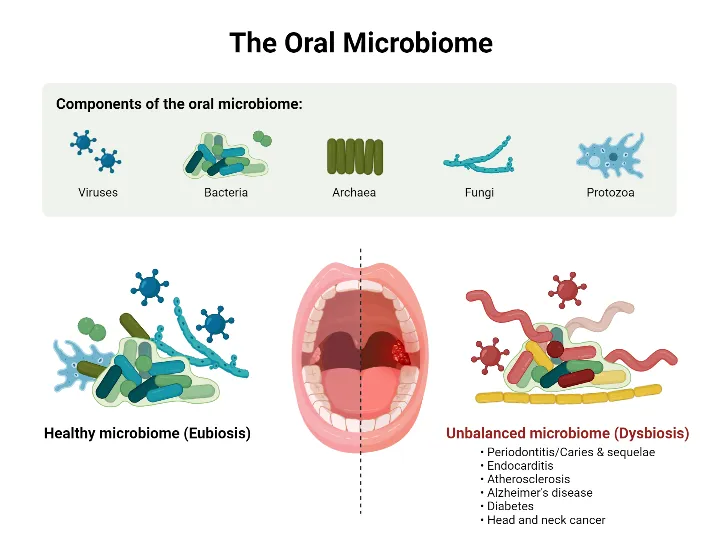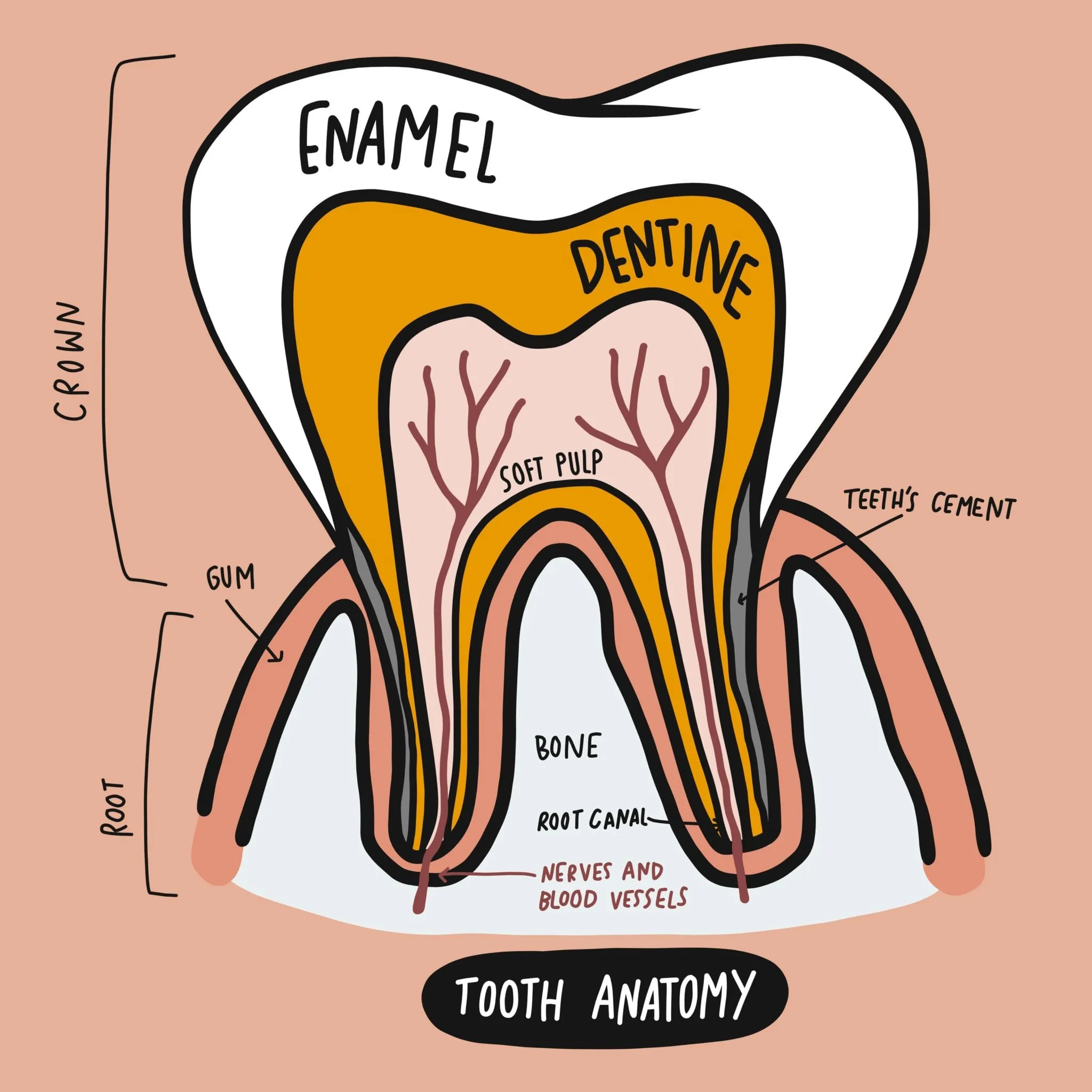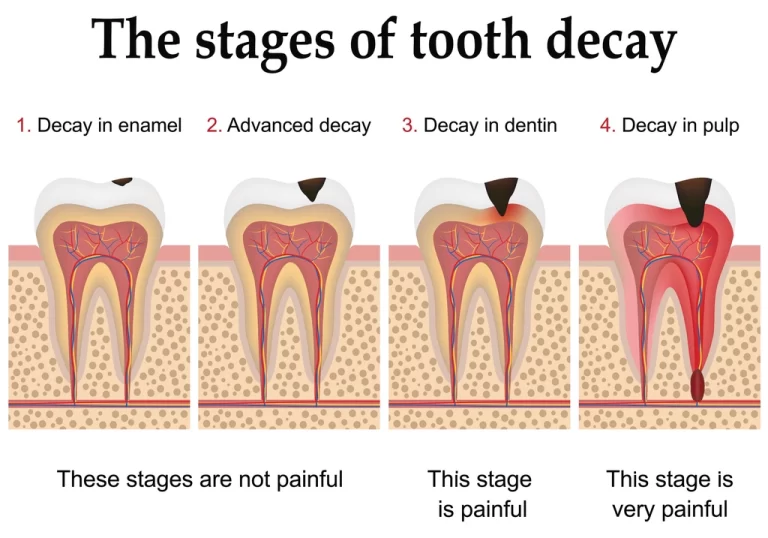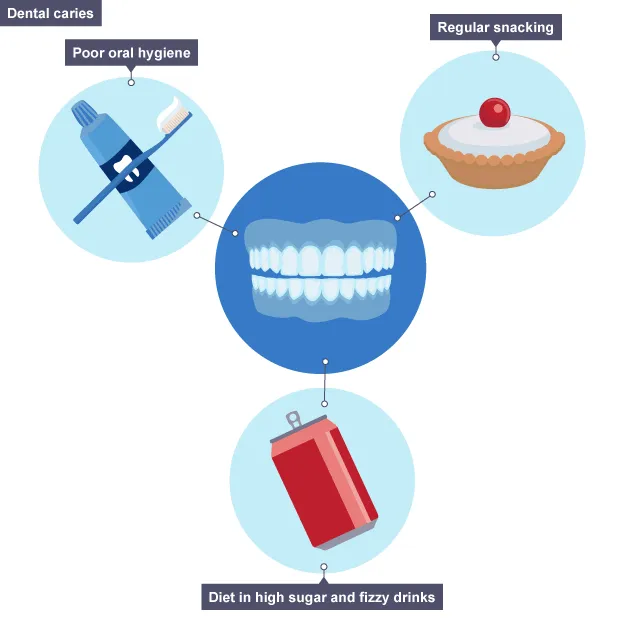Find out more about your health panels and biomarkers.

Dive deeper into your oral health metrics, understand what they are, why they are so important, and how you can improve them.

HEALTH PANEL
Gum Health
What are Health Panels?
Our health panels are designed to assess specific aspects of your oral health that are central to overall wellbeing. These include biomarker scoring, questionnaire responses, and clinical data to monitor change over time.
What is Gum Health?
Your gums, or gingivae, are the 'pink' soft tissue in your mouth that surrounds and supports your teeth. Healthy gums are pink, firm, stippled and should not bleed when brushing or flossing. They help to keep our teeth in place so we can can chew and smile, problem free. In addition, they protect our teeth and jawbones by providing a barrier against bacteria and foreign objects. On the other hand, unhealthy gums can increase your risk of developing gum inflammation which can lead to gum disease. This score represents how healthy your gums are right now.
Your gums, or gingivae, are the 'pink' soft tissue in your mouth that surrounds and supports your teeth. Healthy gums are pink, firm, stippled and should not bleed when brushing or flossing. They help to keep our teeth in place so we can can chew and smile, problem free. In addition, they protect our teeth and jawbones by providing a barrier against bacteria and foreign objects. On the other hand, unhealthy gums can increase your risk of developing gum inflammation which can lead to gum disease. This score represents how healthy your gums are right now.
Why is Gum Health so important?
"Great gum health is important for your smile, comfort, confidence and quality of life" European Federation of Dentistry (EFD). To maintain healthy gums we must understand what’s going on inside them, so we can prevent and manage any onset gum disease. Early detection of gum disease is important minimise negative impact and prevent gum inflammation impacting the rest of your body. By measuring protein biomarkers within your saliva we can detect early indications of inflammation in your gums before you get symptoms or disease. There are two main types of gum disease; gingivitis and periodontitis.
Gingivitis is gum inflammation, which is a mild and reversible form of gum disease. Whereas, periodontitis is a serious and irreversible form of gum disease. It’s an inflammatory condition that attacks the support around your teeth (bone). It can ultimately lead to wobbly teeth and tooth loss. Outside of your mouth it can increase your risks of inflammatory conditions in your body.
Insight
Gum disease is associated with many chronic conditions such as respiratory disease, kidney disease, rheumatoid arthritis, Alzheimer's, and cardiovascular disease. So, starting your journey towards healthy gums can improve not only your oral health but you general health too.If you are diagnosed with gum disease then regular saliva tests can help you to monitor your disease and treatment. It’s a great way to understand if you need to change your habits based your biology, a new form of personalised dentistry.Watch this video (below) about gum health from a patients perspective.

How to improve Gum Health?
"Great gum health is important for your smile, comfort, confidence and quality of life" European Federation of Dentistry (EFD). To maintain healthy gums we must understand what’s going on inside them, so we can prevent and manage any onset gum disease. Early detection of gum disease is important minimise negative impact and prevent gum inflammation impacting the rest of your body. By measuring protein biomarkers within your saliva we can detect early indications of inflammation in your gums before you get symptoms or disease. There are two main types of gum disease; gingivitis and periodontitis.
Gingivitis is gum inflammation, which is a mild and reversible form of gum disease. Whereas, periodontitis is a serious and irreversible form of gum disease. It’s an inflammatory condition that attacks the support around your teeth (bone). It can ultimately lead to wobbly teeth and tooth loss. Outside of your mouth it can increase your risks of inflammatory conditions in your body.
The following lifestyle choices can have a positive impact:
-
🧘 Reducing stress
-
⚖️ Keeping a healthy BMI (Body Mass Index)
-
🍏 Following a diet rich in whole foods/varied fruits and vegetables
-
❌ Reduce your alcohol and/or smoking intake
Top Tip
Flossing! By this we mean cleaning in between your teeth. There are a range of tools you can use to floss but the most common are:
1. Tape floss
2. Interdental brushes
We would recommend to use interdental brushes and tape floss in the spaces that are too tight for brushes. Your dentist/ hygienist can help to guide you on the correct size brush for your teeth. Please refer to the infographic.
HEALTH PANEL
Bacterial Harmony
What is Bacterial Harmony?
The
oral microbiome
is a diverse ecosystem of microorganisms found in our mouths consisting of mainly of bacteria. There should be a diverse community of bacteria working in harmony to help prevent the overgrowth of harmful bacteria to help promote oral and overall health.
On the other hand, disruption of this ecosystem can contribute to problems such as tooth decay, gum disease, bad breath and oral infections. This imbalance can impact your overall health by reducing your immune response and increase your risks of inflammatory diseases such as diabetes.
The
oral microbiome
is a diverse ecosystem of microorganisms found in our mouths consisting of mainly of bacteria. There should be a diverse community of bacteria working in harmony to help prevent the overgrowth of harmful bacteria to help promote oral and overall health.
On the other hand, disruption of this ecosystem can contribute to problems such as tooth decay, gum disease, bad breath and oral infections. This imbalance can impact your overall health by reducing your immune response and increase your risks of inflammatory diseases such as diabetes.
Top Tip
The oral microbiome is the second largest microbiome in our body after the gut but it is the most well studied.

Why is Bacterial Harmony so important?
Keeping bacterial harmony is crucial to your oral health and overall health. This 'harmony' ensures your oral microbiome is diverse and balanced which can help your body to fight inflammation. This ecosystem is also involved in the initial stages of digestion whilst preventing harmful bacteria overgrowth.
Early detection of an imbalance is important to minimise negative impacts and prevent oral and general health issues. Inside the mouth this harmony can help to prevent dental cavities, periodontal disease, bad breath and protect against infections such as oral thrush. The loss of a harmonious oral microbiome can also increase your risks of health problems outside of the mouth such as diabetes, cardiovascular disease and Alzheimers.
How to improve your Bacterial Harmony?
The oral microbiome is constantly changing because we use our mouths to breathe, eat, cough, swallow and kiss. Generally your day-to-day won’t negatively impact your bacterial harmony enough to cause oral and general health consequences. Stress, smoking and a poor diet are examples of habits that can negatively impact your bacterial harmony. To help achieve bacterial harmony, ensure you are regularly testing and following the personalised recommendations on your dashboard. Remember, disruption of bacterial harmony may not necessarily show signs and symptoms so it’s important to visit your dentist/hygienist for regular dental examinations and professional cleaning.
Habits you can include in-between your dental visits:
-
💧 Drink plenty of water to help maintain your saliva
-
🧘 Reduce your alcohol and/or smoking intake
-
🍏 Fruits, vegetables and fibre in your diet will support your oral and gut microbiome
-
💊 Only use antibiotics when professionally prescribed and complete the full course
Top Tip
Eating probiotics such as certain yoghurts or having probiotic supplements can improve your oral microbiome.

References
Want to discuss or suggest a reference?
HEALTH PANEL
Cavity Resistance
What is Cavity Resistance?
Cavities, or "dental caries", are damage to your tooth surface resulting in holes also known as tooth decay. This score represents the ability of your mouth to defend against dental cavities. It assesses your risk of developing tooth decay which can lead to holes, toothache and infections. This score will not be able to determine exactly which tooth is affected, but this can be discussed with your dentist. If you want to learn more about dental decay, listen to the podcast linked below by the Oral Health Foundation.
Fun Fact
On average we should have 32 adult teeth consisting of; incisors, canines, premolars, molars and wisdom teeth. We need our teeth to smile, eat and speak. There are two main parts to your teeth; the part you can see is called the crown and the part that is hidden beneath your gums is called the root. Each tooth is made up of 3 main layers: Enamel, Dentine and the pulp (nerve and blood vessels) - see image, top right.


Why is Cavity Resistance so important?
If you keep your teeth free of developing new cavities, and this panel score is 'healthy' or ‘optimal’ then you can expect to keep your teeth pain-free and continue, smiling, eating and speaking! Our teeth function beyond our mouths, they improve our confidence and can positively impact our careers, relationships and social lives. Regular monitoring through dental checkups and saliva testing can help you to understand your current risks and if you need to make any changes.
On the other hand, if you have tooth decay it can lead to pain, infections and tooth loss. A small cavity can be treated with a filling but larger cavities, left untreated, can lead to
root canal
treatment or an
extraction
. The impact of cavities can effect quality of life, sleep and cause absence from school or work.
Fun Fact
Dental cavities have been found by the World Health Organisation (WHO) to be the most common
non-communicable disease
in the world!
How to improve your Cavity Resistance?
The best thing you can do is to follow an effective oral hygiene routine; brushing twice daily using
fluoridated toothpaste
, making sure to spit (not rinse) and flossing.
Sugar, bacteria and dental cavities are closely connected. Many people focus on reducing the quantity of sugar which is great for your oral and general health. This will also lower your risks of problems such as diabetes and heart disease. In terms of tooth decay, the frequency of sugar intake is more important than the quantity; if you’re snacking on sugar throughout the day you’re more likely to have dental cavities compared to having 3 meals a day.
Whenever we eat or drink, especially refined carbohydrates and sugars,
dental plaque
can form. There are bacteria in your dental plaque that feed on any remaining sugars in your mouth and produce acid. If this dental plaque isn’t removed thoroughly and your teeth remain in an acidic environment, then your teeth can erode leading to dental cavities. Additionally, if the dental plaque is left on your teeth for a longer period of time it can harden to form
calculus
. Once this has formed you must visit your dentist/hygienist to professionally clean this off as you won’t be able to remove it at home.
In summary, following regular and effective oral hygiene practices, reducing the frequency of your sugar intake and regular visits to your dentist/hygienist can help to prevent dental cavities. If you want to learn more about what can cause dental cavities, check out the video linked below.
Top tip
Drinking water throughout the day can help to neutralise acids in your mouth and lower the risk of tooth decay.

HEALTH PANEL
Systematic Health
What is Systemic Health?
Systemic
health simply means overall health. This Systemic Health score relates to the impact of your oral health on
inflammation
in your body. Keeping your systemic health optimal contributes to overall wellbeing by lowering your risk of inflammatory problems such as cardiovascular disease, diabetes and gum disease.
Your oral health, and levels of gum inflammation, are strongly linked with inflammation in your body. This score represents how your oral health is impacting early inflammation in your body. To learn more read the linked article written by member's of our Medical Advisory Board (MAB).
This relates to your entire body/system.
Inflammation is part of the body's defence mechanism. It is the process by which the immune system recognises and removes harmful/foreign stimuli to initiate the healing process.
Why is Systemic Health so important?
Excellent systemic health is important for your overall wellbeing. To maintain a healthy body we must understand what’s going on inside your body so you can prevent and manage diseases related to inflammation. Early detection is important so you can prevent these diseases before they cause problems or become more serious.
There are proven links between your oral and general health. Gum disease is linked to a number of health conditions with bi directional links with diabetes; Keeping your mouth, teeth and gums healthy can positively impact your diabetes and vice-versa.
If you have been diagnosed with an inflammatory disease then regular saliva tests can help you to monitor your inflammation and treatment outcomes. It’s a great way to understand if you need to change your habits based your biology! To learn more about the link between oral and systemic health watch this video by Professor John Deanfield CBE.

How to improve your Systemic Health?
An effective oral hygiene routine is the best way to reduce the risk of oral inflammation impacting your body. Regular oral hygiene combined with professional dentist/ hygienist cleaning can contribute to better oral and systemic health. In addition, lifestyle choices such as smoking, drinking alcohol and your diet can effect your systemic inflammation.
We recommend following a healthy varied diet:
-
🍫 Reducing/avoiding sugar intake
-
🍔 Reducing/avoiding processed foods and drinks
-
🍏 Anti-inflammatory diet i.e. whole foods like fruits, vegetables, nuts, whole-grains and beans
-
💪 Including Vitamin C, Vitamin D, Zinc and Magnesium in your diet
This includes daily preventative care, including brushing using fluoridated toothpaste twice a day, flossing, tongue cleaning and using a fluoride mouthwash if recommended by your dentist/hygienist.











